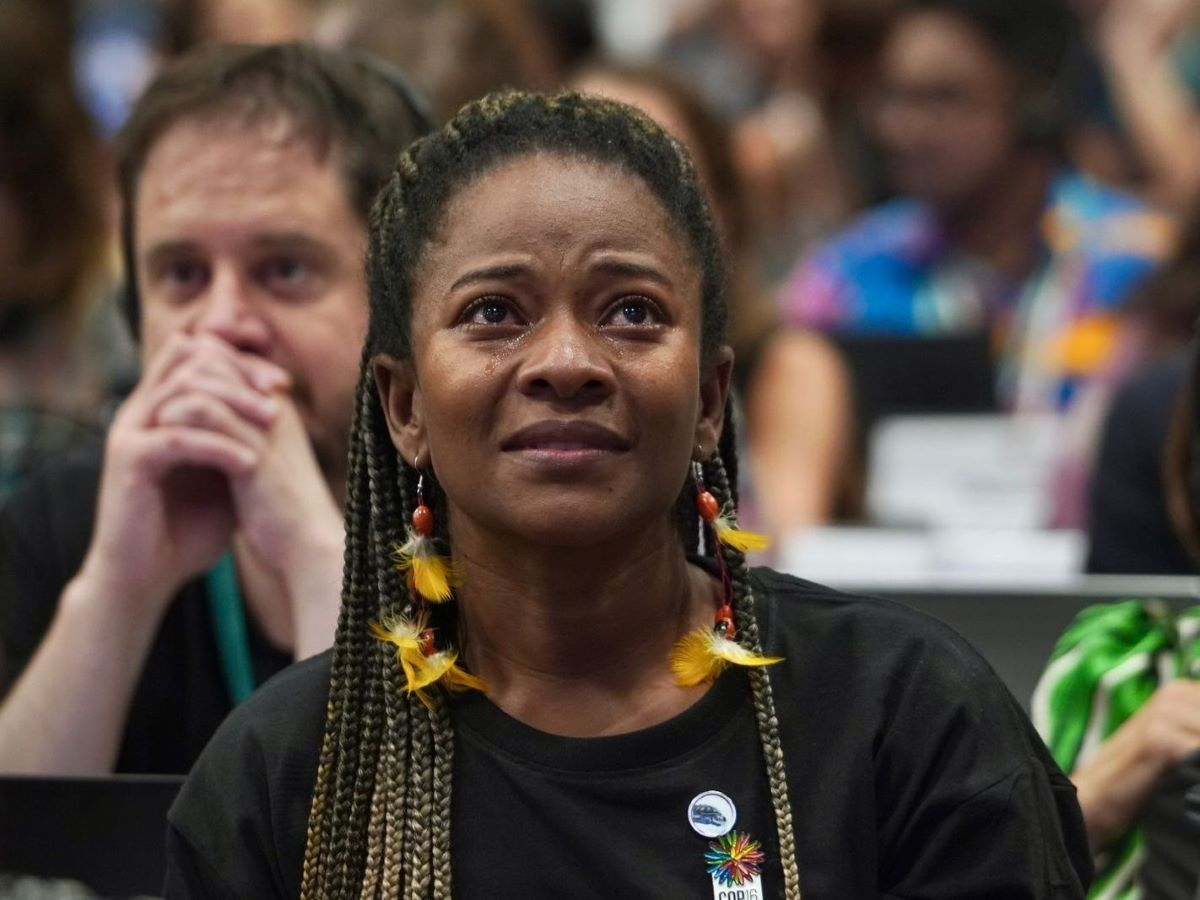This article is also available in Italian / Questo articolo è disponibile anche in italiano
From Cali - COP16 in Colombia ended a day later than scheduled, amid a blend of disillusionment and some historic achievements, following an entire night of negotiations. The conference was supposed to focus on concrete steps to implement the 23 targets of the 2022 UN Agreement, aimed at preserving the Earth's plant and animal life, protecting 30% of the planet, and restoring 30% of degraded ecosystems by 2030.Fine modulo
As the few remaining delegations are glued to their phones, scrambling to book new flights − many complained that the less wealthy countries lacked the resources to extend their stay − journalists are left to interpret the decisions made and the missed opportunities, of what turned out to be a negotiation marred by the decades-long divisions between industrialised and developing or newly industrialising countries.
Three positive outcomes emerged from COP16: the establishment of a permanent body for Indigenous and local communities within the Convention, which includes formal recognition of Afro-descendant peoples, along with the creation of the historic Cali Fund; the approval of the DSI (Digital Sequence Information) mechanism; and the finalised text on identifying new marine areas of ecological or biological significance (EBSAs), including areas in international waters, which broadens the global network of protected areas.
The failures of COP16 Colombia
The document on the financial strategy and resource mobilisation required to achieve the 2030 target of mobilising 200 billion dollars per year globally − and an interim target of 20 billion dollars by 2025, to be contributed by developed nations under the GBF to support vulnerable countries in protecting nature − came to an abrupt halt. After 12 straight hours of negotiations without an agreement, President Muhamad adjourned the session: the plenary proved ineffective, as the steady departure of delegates had made it impossible to reach a quorum.
As a result, both the document on finance and the one on PMRR, the framework for tracking countries' progress on their commitments (of which only 41 nations have submitted national plans for the protection of biodiversity), were left unaddressed and could not be voted on. There is no indication if or when these negotiations might resume. In an attempt to soften the impact of this shocking decision, the president issued an audio message to the press, defending the organisation of a COP that welcomed “23,000 delegates and nearly a million visitors to the Green Zone” (an overestimated figure, according to the author). Despite efforts to protect the work that has been done, Cali is certainly not a success. On the contrary, it exposed significant weaknesses of the Biodiversity COP, with small delegations, not always prepared and supported by secondary political figures, not always aware of the importance of the negotiation.
According to Kirsten Schuijt, WWF Director General, "this outcome puts the implementation of the Kunming-Montreal Global Biodiversity Framework at risk". And as much as achieving the mission to halt and reverse biodiversity loss by 2030 was never easy, “we are now going dangerously off track”.
Everything is on hold when it comes to finances
Much of the misunderstanding arose over the nature of the fund for resources to protect biodiversity towards the least developed countries. It was provisionally decided in the 2022 agreement to create the GBFF, Global Biodiversity Framework Fund, within the GEF, an organisation set up by the United Nations that manages various funds for the environment linked to UN negotiations.
Similar to the climate and desertification negotiations, for countries like Congo and Brazil it would have been important to establish a new, autonomous fund that would grant non-Western countries a greater role. However, for Europe, the creation of a separate fund would have meant additional costs and diminished oversight capabilities. On 1 November, the COP16 president presented a final draft proposing the establishment of a new biodiversity fund, but the EU, Switzerland, and Japan ultimately rejected this proposal.
Indigenous rights
The decision on Article 8(j) received long applause, as it enshrines respect for and preservation of Indigenous and local knowledge and practices for biodiversity. The text strengthens their representation and fosters dialogue with COP Parties, prioritises biodiversity management on Indigenous and traditional lands, and promotes international human rights standards as outlined in the Global Biodiversity Framework.
The body will consist of two co-chairs elected by the COP: one nominated by the UN parties and the other by representatives of Indigenous peoples and local communities. According to Txai Suruí, coordinator of the Indigenous Youth Movement, this is a landmark success that has achieved the recognition of Indigenous peoples and Afro-descendent communities as guardians of biodiversity, and although he would have preferred a non-separate text, "it was undoubtedly a victory".
DSI, the real success story of COP16
With the approval of the DSI mechanism, which ensures the fair and equitable sharing of benefits derived from the use of digital genetic data, those who profit from the unique properties of plants and animals will, for the first time, be required to return a portion of their proceeds to support biodiversity conservation. The newly established Cali Fund will channel resources generated from the commercial use of nature directly into biodiversity conservation, with a particular focus on supporting developing countries, Indigenous peoples, and local communities, who will receive at least half of the fund’s resources.
The contributors will be companies in the fields of pharmaceuticals, nutraceuticals, cosmetics, animal husbandry, biotechnology, laboratory equipment associated with sequencing and the use of digital sequence information on genetic resources, “which have a balance sheet that exceeds at least two out of three of these thresholds (Total assets: 20 million dollars. Sales: 50 million dollars. Profits: 5 million dollars), based on the average of the previous three years”. They should contribute to the fund 1% of their profits or 0.1% of their revenues.
According to various observers, numerous lobbyists from the pharmaceutical sector have tried to water down the (already bland) proposal, but at the time of the publication of this article, it was not possible to gather comments from the sectors affected. We have, however, devoted an article to the in-depth analysis of the DSI.
Companies, a glass half full
From a corporate viewpoint, COP16 is not a failure, as Nina Seega, Director of the Centre for Sustainable Finance at the Cambridge Institute for Sustainability Leadership (CISL), explained to the author. “Economic commitments for biodiversity nearly doubled, reaching 396 million dollars. The new Cali Fund was agreed upon […], alongside new funding for capacity building and biodiversity conservation in the high seas, and initiatives to boost private finance have been launched. It was encouraging to see 3,000 companies at COP16, showing their support for an ambitious policy framework to address the nature crisis.”
The hard work now lies with national governments, which must set out clear plans to tackle biodiversity loss and ensure that the targets outlined in the GBF are met. It will be necessary to work on environmentally harmful subsidies, stop destructive agribusiness practices, promote regenerative agriculture, monitor the mining sector, and contain tourism.
Now, the real challenge for biodiversity is to bring all three negotiating paths on climate, biodiversity, and desertification together. The climate community must fully embrace biodiversity efforts and give due attention to the Desertification Convention. Only in this way can real pressure be applied, as is happening with the Paris Agreement and the Climate COPs.
Image: UN Biodiversity



